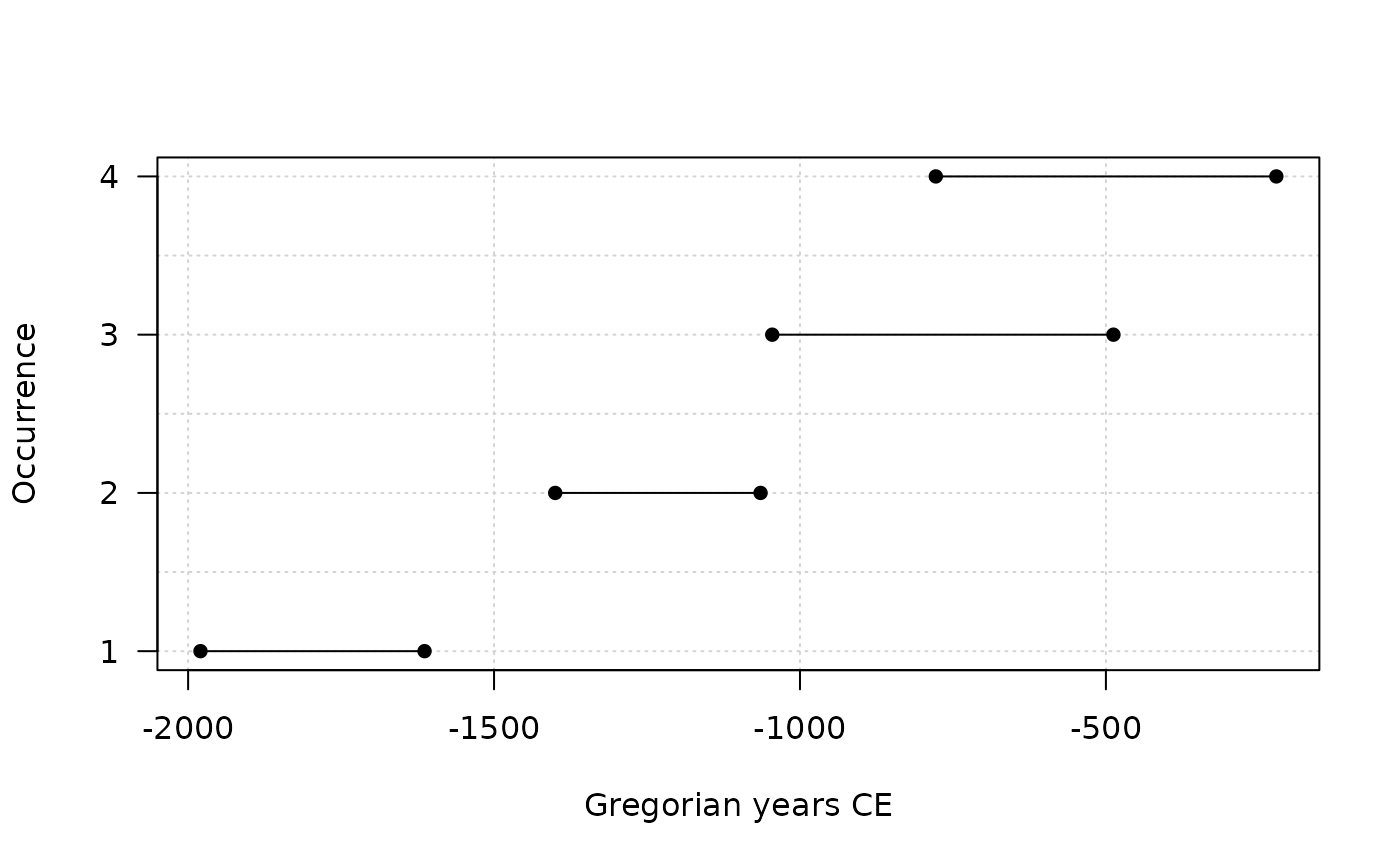A statistical graphic designed for the archaeological study of when events of a specified kind occurred.
Arguments
- object
An
EventsMCMCobject.- ...
Currently not used.
- level
A length-one
numericvector giving the confidence level.
Details
If we have \(k\) events, then we can estimate the calendar date \(t\) corresponding to the smallest date such that the number of events observed before \(t\) is equal to \(k\).
The occurrence() estimates these occurrences and gives the credible
interval or the highest posterior density (HPD) region for a given level
of confidence.
